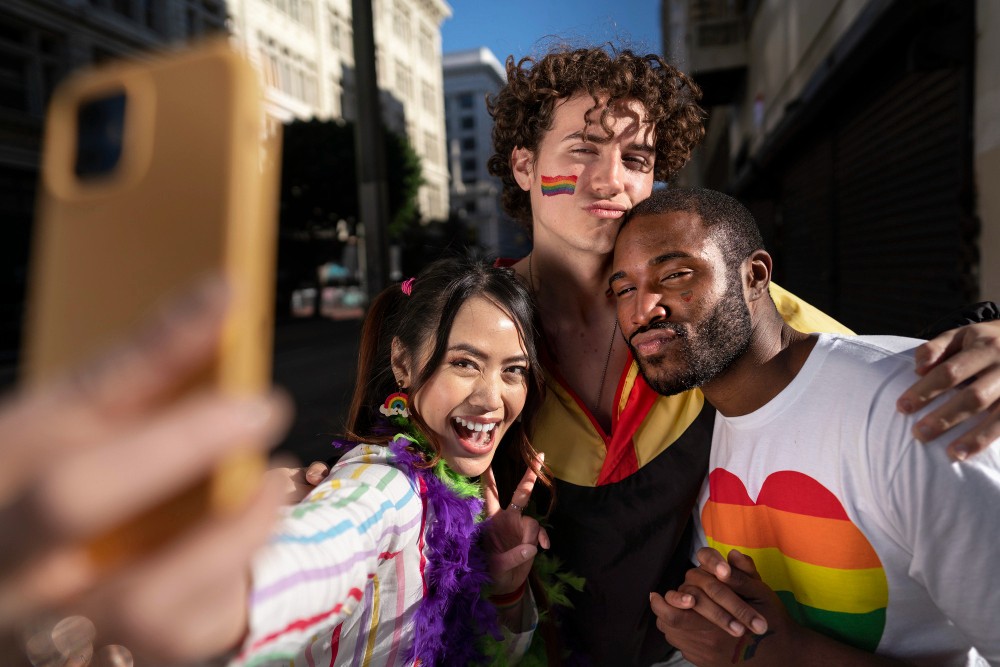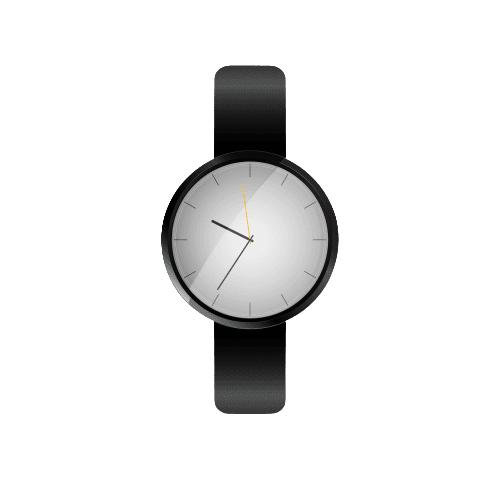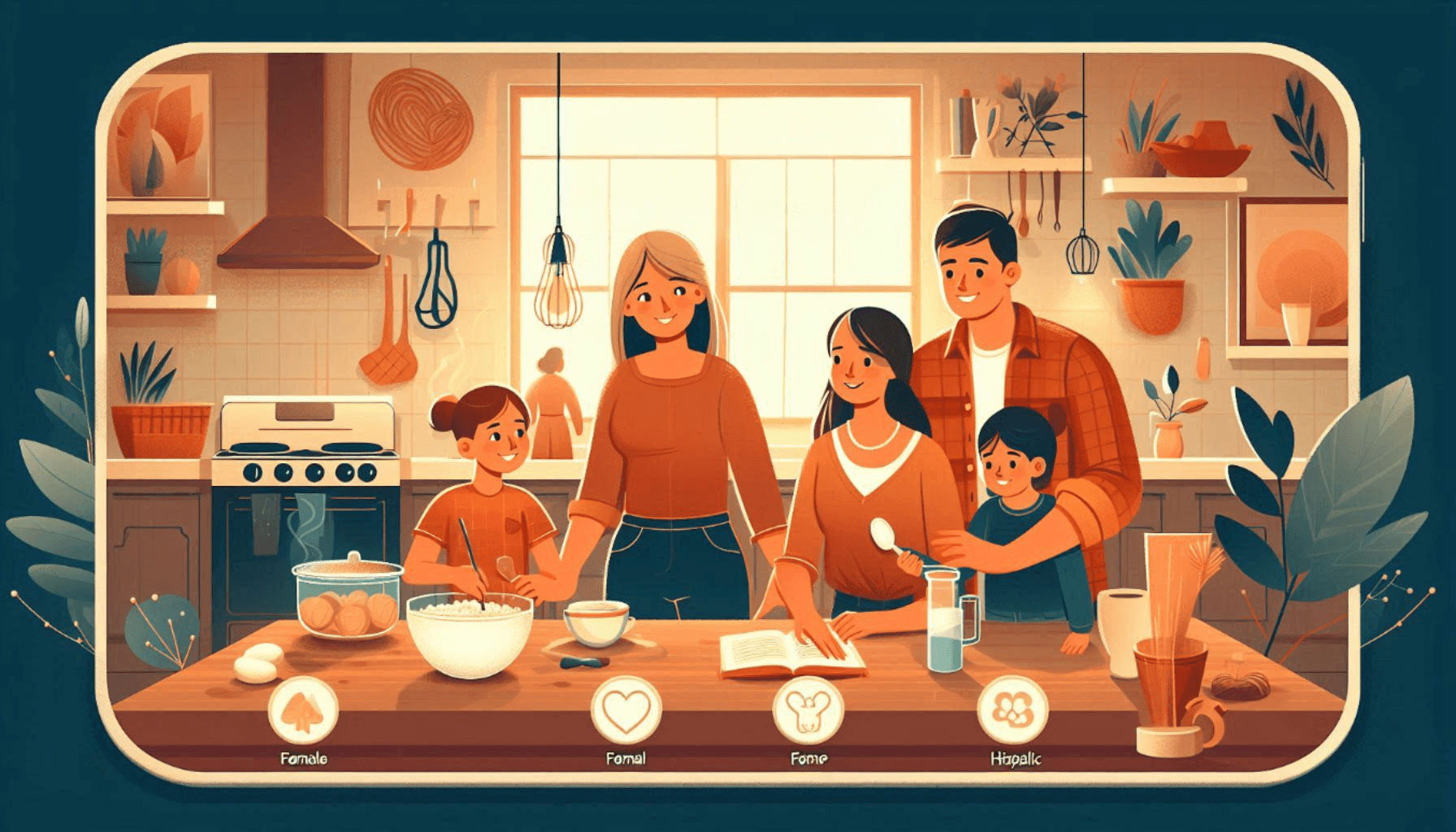Heart
12 Things LGBTQ+ People Are Tired of Hearing: Let’s Break the Stereotypes

Team NxtClue
Content
|
5 mins
|
Aug 26, 2024

0:00/1:34
Don't have enough time to read?
Listen

12 Things LGBTQ+ People Are Tired of Hearing
Stereotypes can be quite damaging. While you may say they exist to make people and situations more relatable, they often do more harm than good by putting individuals in a box and categorizing them in one way. Perhaps the most affected by such stereotyping are the LGBTQ+ community, whose acceptance in society often depends on the public perception of their identities.
1. “Look at how he talks and dresses. He’s totally gay.”
Stop judging people’s sexuality based on how they dress or act. Yes, some people express themselves in ways that might fit under these stereotypes, but there are just as many who don’t. Let individuals define their own identities without our judgments.
2. “I need a gay best friend for shopping and stuff.”
Not all gay men like shopping. This belief perpetuates harmful stereotypes and reinforces heteronormative behaviors.
3. “She’s such a tomboy. Must be a lesbian.”
Acting in ways perceived as 'manly' does not equate to being lesbian. This is another example of heteronormative thinking that limits people's expression.
4. “It’s just a phase.”
Learn to accept that individuals might know more about themselves than others do. This dismissive comment can invalidate their true experiences and identities.
5. “Asexuality isn’t a thing. You just haven’t met the right one yet.”
Asexual people do not experience sexual attraction, and this isn't something that will change with time or the right partner. Respect their identity.
6. “So you like to do drag?”
Being transgender and being a drag queen are two completely different things. Drag is a performance art, while being transgender is about one's gender identity.
7. “How do you know you’re gay if you’ve never dated a guy/girl?”
Just as straight people know they are straight without dating, queer people know their sexual orientation too.
8. “Aren’t trans men just lesbian?”
Lesbians are women who love women; trans men are men who were assigned female at birth and may or may not love women.
These are just a few examples of damaging stereotypes that the LGBTQ+ community is tired of hearing. It's time to learn, listen, and change our perspectives.
Download
Related Blogs

11 min
Heart
Why Schools Need SEL

Team NxtClue
|
26/08/24

11 min
Heart
Build Closer Family Bonds

Team NxtClue
|
26/08/24

11 min
Heart
Maintain a Healthy Dating Life

Team NxtClue
|
26/08/24

11 min
Heart
Millennials and Relationships

Team NxtClue
|
26/08/24

I May Not Be the Menu, But I Can Still Guide You – I Know Some Shortcuts!
With us
Decision is yours
Without us

Copyright © 2024 NxtClue | All Rights Reserved
0:00/1:34
Don't have enough time to read?

Listen

5 mins
Heart
12 Things LGBTQ+ People Are Tired of Hearing: Let’s Break the Stereotypes

Team NxtClue
|
Aug 26, 2024
Download
12 Things LGBTQ+ People Are Tired of Hearing
Stereotypes can be quite damaging. While you may say they exist to make people and situations more relatable, they often do more harm than good by putting individuals in a box and categorizing them in one way. Perhaps the most affected by such stereotyping are the LGBTQ+ community, whose acceptance in society often depends on the public perception of their identities.
1. “Look at how he talks and dresses. He’s totally gay.”
Stop judging people’s sexuality based on how they dress or act. Yes, some people express themselves in ways that might fit under these stereotypes, but there are just as many who don’t. Let individuals define their own identities without our judgments.
2. “I need a gay best friend for shopping and stuff.”
Not all gay men like shopping. This belief perpetuates harmful stereotypes and reinforces heteronormative behaviors.
3. “She’s such a tomboy. Must be a lesbian.”
Acting in ways perceived as 'manly' does not equate to being lesbian. This is another example of heteronormative thinking that limits people's expression.
4. “It’s just a phase.”
Learn to accept that individuals might know more about themselves than others do. This dismissive comment can invalidate their true experiences and identities.
5. “Asexuality isn’t a thing. You just haven’t met the right one yet.”
Asexual people do not experience sexual attraction, and this isn't something that will change with time or the right partner. Respect their identity.
6. “So you like to do drag?”
Being transgender and being a drag queen are two completely different things. Drag is a performance art, while being transgender is about one's gender identity.
7. “How do you know you’re gay if you’ve never dated a guy/girl?”
Just as straight people know they are straight without dating, queer people know their sexual orientation too.
8. “Aren’t trans men just lesbian?”
Lesbians are women who love women; trans men are men who were assigned female at birth and may or may not love women.
These are just a few examples of damaging stereotypes that the LGBTQ+ community is tired of hearing. It's time to learn, listen, and change our perspectives.
Copyright © 2024 NxtClue | All Rights Reserved

I May Not Be the Menu, But I Can Still Guide You – I Know Some Shortcuts!
With us
Decision is yours
Without us

Copyright © 2024 NxtClue | All Rights Reserved

I May Not Be the Menu, But I Can Still Guide You – I Know Some Shortcuts!
With us
Decision is yours
Without us

Related Blogs